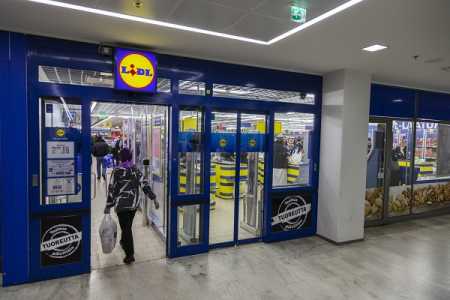Mon, 26 Jan, 2015 02:46:06 AM FTimes-Xinhua Report by Denise Wall, Jan 26
One university economist said the price cutting strategy isn't a recognition of declining customer purchasing power, but a strategy to lure consumers disenchanted by the country's stagnating economy. The ink had hardly dried on the reams of newsprint advertising massive customer discounts by Finland's largest food retail chains, when the upstart German chain Lidl announced that it too would be reducing prices at the register. Lidl has widely been seen as the challenger looking to erode the domination of the market leaders S Group with 42 percent market share in Finland and Kesko, not far behind with 31 percent. Many interpreted the move to cut food prices as the retailers' recognition that Finland's three successive years at an economic standstill had eaten into consumers' wallets. But that's not necessarily so, said University of Helsinki lecturer Ulla Lehmijoki, who specializes in economic growth and population economics. Instead, she told Xinhua, consumer purchasing power in Finland has remained intact despite the economic decline. "Consumer demand has been decreasing, yes. But purchasing power has not decreased. In fact it has increased slightly during 2014. What has changed has been the saving propensity, which has increased," Lehmijoki explained.
"The expectations for the future are very pessimistic so consumers are saving more and there is lower demand for all kinds of goods," she added. The national statistical agency confirmed the glum outlook: consumer confidence in December came in at 4.4, well below the long-term average of 11.9 and the 7.2 recorded by the index at the end of 2013. Lehmijoki speculated that the food retailers - S Goup, Kesko and the German chain Lidl - may all be pitching in to a strategic maneuver to encourage consumers to part with their cash, rather than hoarding it for a rainy day. "The recession has now been going on for a few years already. So this may really be about increasing consumption," she said. In mid-January the leading food retailer S Group announced that it was permanently slashing prices by up to 37 percent on 150 products in its hypermarket Prisma outlets across the country. Consumers eager to take advantage of the S Group discounts soon found that the biggest savings were to be had on domestic food basket items such as bread (up to 36 percent), dairy products (13 - 26 percent), carbonated drinks (up to 50 percent) and the retail chains' own in-house brands (up to 37 percent). The rival Kesko group immediately announced that it too had reduced prices on close to 400 products by as much as 30 percent - but that it had already done so back in December. Not to be outdone, the German budget chain Lidl announced that it would be matching the competition head-on by further reducing its already below-market prices. If food retailers are indeed looking to boost consumption, they would be supporting one of the main planks of the government's 2015 budget program, which is banking on domestic consumption to help kick-start economic growth. However Lehmijoki noted that at the micro-economic level, what the Finnish media have dubbed the "food price war" could simply reflect the efforts of players in the sector to secure and even expand market share. She added that if that's the case, it's still difficult to tell how long consumers can expect to enjoy the benefits of the retailer turf war. "It may be for a fixed period, because it would be expensive to sustain over longer periods. But if the market opens up, we could see the trend continue," Lehmijoki concluded.
More News
|
|
Finland Times
| Monday, 19 January, 2026 |



